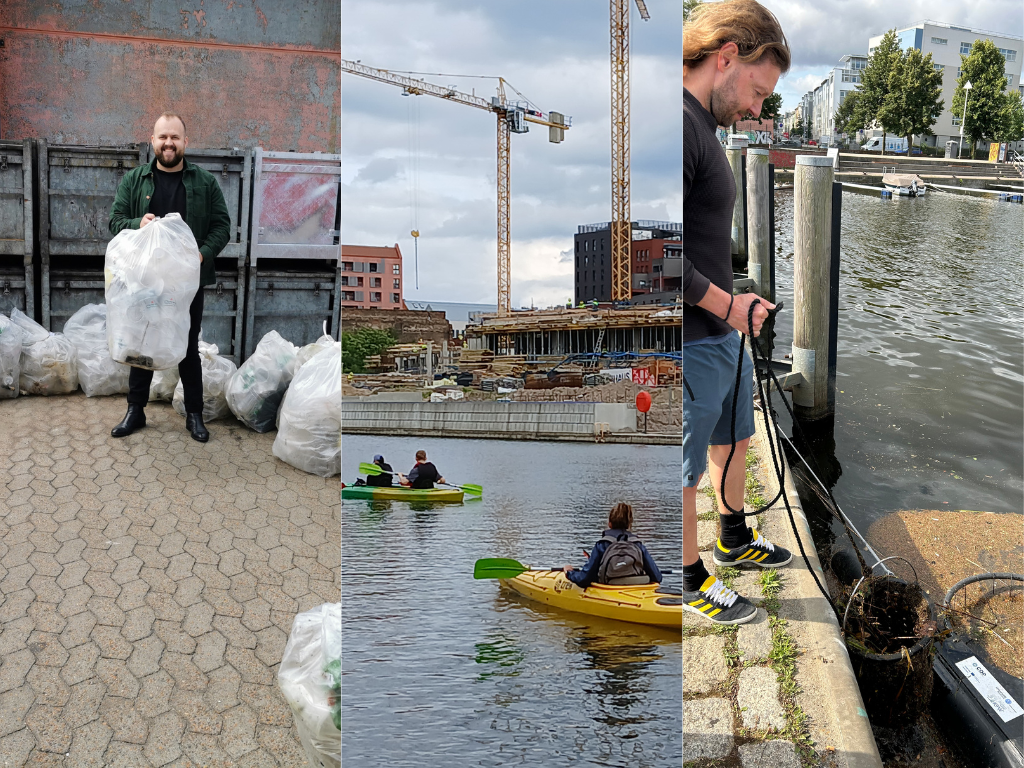We are excited to announce that the Circular Ocean-bound Plastic (COP) Project has begun its hands-on activities in our three pilot cities: Aarhus, Gdansk, and Rostock. This phase marks a significant step forward in our mission to tackle ocean-bound plastic waste in the South Baltic Sea region. Over the next year, we will be collecting and analysing waste to identify patterns and develop sustainable recycling solutions. Here’s what we’re up to:

Aarhus, Denmark: Analyzing Waste from the Seaprotector One
In Aarhus, we’ve commenced receiving waste collected by the Seaprotector One from All in On Green, which has been effectively managed by the local municipality. The collected waste is now being sent to Plast Center Denmark, where our team is meticulously analysing its composition. This analysis is crucial for understanding the types of plastics entering the canal and exploring their recycling potential.
Gdansk, Poland: Community Engagement through Kayak Clean-ups
Our initiative in Gdansk involves a unique and engaging approach to waste collection. In collaboration with Gdansk Sports Center and the University of Gdansk, we’re inviting the public to rent free kayaks. In return, participants collect a bin of waste, making a direct contribution to our cleanup efforts while enjoying a day on the water. This hands-on initiative not only helps clean our waters but also fosters community engagement and environmental awareness.


Rostock, Germany: Port Bin Installation and Public Involvement
In Rostock, our partners at the University of Rostock and IOW have installed a port bin in the Rostock City Harbour. This bin is designed to efficiently capture floating waste. Two weeks ago, we hosted our first public port bin emptying and Q&A session, inviting local residents to participate and learn more about our efforts. This event was a great success, raising awareness and encouraging community involvement.
We are committed to collect and analyse waste in the three pilot cities for at least one year to identify waste patterns and develop sustainable recycling solutions. We are happy to have the support of the local municipalities for these initiatives where we can not only remove current waste from the waters but also gather valuable data that will help us find long-term solutions.
Stay tuned for more updates and insights as we work together towards a cleaner South Baltic Sea.

